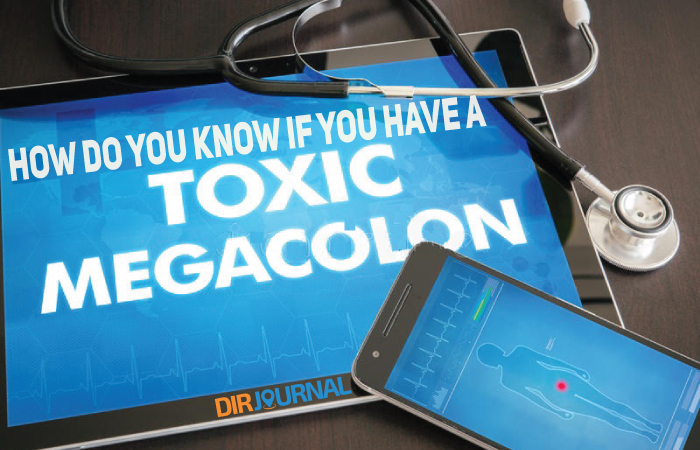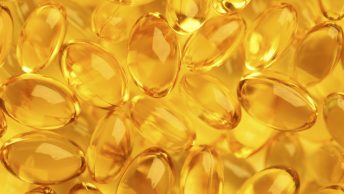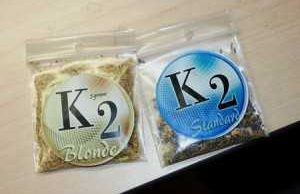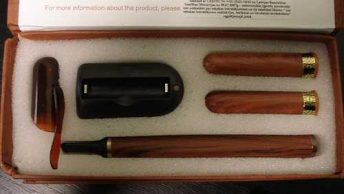By now you know that it is not possible to “live” with a toxic colon because it will not let you live. Yes, it can get very bad if neglected and lead to a host of debilitating health issues, including obesity, severe gastrointestinal dysfunction, gum disease, food allergies as well as recurring depression. But, how do you know if you are a victim?
You will certainly know when you cannot see your knees anymore – due to overweight. That sounds scary but it is a fact.
There are other ways of finding out the condition of the colon. One obvious sign is difficult and painful bowel movements. According to Robert Gray, a nutritional counselor, “Few people have any inkling as to how much old, hardened feces are chronically present within their bodies.”
Transit time can also be used to measure the health of a bowel, with the optimal transit time being 18-20 hours. Other symptoms of a toxic bowel are bloating and gas, weight gain, lower back pain, headaches, fatigue, depression, dark circles under the eyes, sallow complexion, abnormal body odor, tender abdomen and bad breath.
While observing the symptoms is essential, nutritionists also advise undergoing tests to get more detailed information about the colon condition. These tests may also help determine the treatment that is needed.
Testing The Transit Time – A simple procedure that can be done at home is to test the food transit time. Begin by eating a test food, such as corn on the cob, beets, sesame seeds, sunflower seeds or any other food that is visible in the stool. The time of ingestion of the test food should be noted and then it should be carefully watched to see the material appear in the stool, identifying the food in the stool by undigested seeds, kernels or the dark red color from the beets. The time between the ingestion of the test food to the appearance in the stool is the transit time.
Bacterial Breath Test – This test will determine if bacteria has taken over the small intestine, by measuring the levels of hydrogen and methane in the breath after the intake of a specially formulated drink that contains non-digestible sugar (lactulose). If there is bacteria in the small intestine, the levels of both methane and hydrogen will increase.
Iridology – This is an alternative medicine technique that can be used to assess the health of the colon. This diagnostic tool studies the iris of the eye. Iridologists have amazingly mapped the entire body in the iris and will look for black spots, tiny yellow clumps, white circles or speckles on the surface of the iris to detect any disease in any part of the body. James D’Adamo, N.D., a naturopath says that when the colon is toxic a ringed formation will appear on the iris.
Urinary Indican (Obermeyer Test) – This test reveals the amount of indican, which is a bacterial waste product in the urine. A high level of indican reflects a colon filled with putrefactive bacteria.
Tongue Analysis – Traditional Chinese medicine has used the tongue to diagnose a host of internal diseases. To perform a tongue analysis, no food should be eaten after 5 p.m. on the previous day, and also no meat should be included in the last meal. Upon waking up the next morning, the tongue should be checked to see if there is a coating, which if existent, can be an indicator of a clogged colon. The thicker the coating, the worse the problem.
Comprehensive Digestive Stool Analysis – This involves a physician performing almost two dozen tests on a stool sample. These tests will reveal the level of digestion of food, how efficiently the nutrients are being absorbed, the proportion of friendly bacteria in the intestine when compared to unfriendly bacteria, whether fats are being absorbed, whether yeasts such as Candida are present and also whether the diet contains sufficient fiber. This is considered to be one of the best ways to gauge into the colon and observe its functioning.
After identifying the toxicity of colon by performing any of the above mentioned tests, a colon cleansing is commonly recommended by health practitioners as part of the detoxification program. It is important for everyone to understand their bodies well enough to be able to see the symptoms of colon disease and take appropriate action. As they say, self help is the best help.













